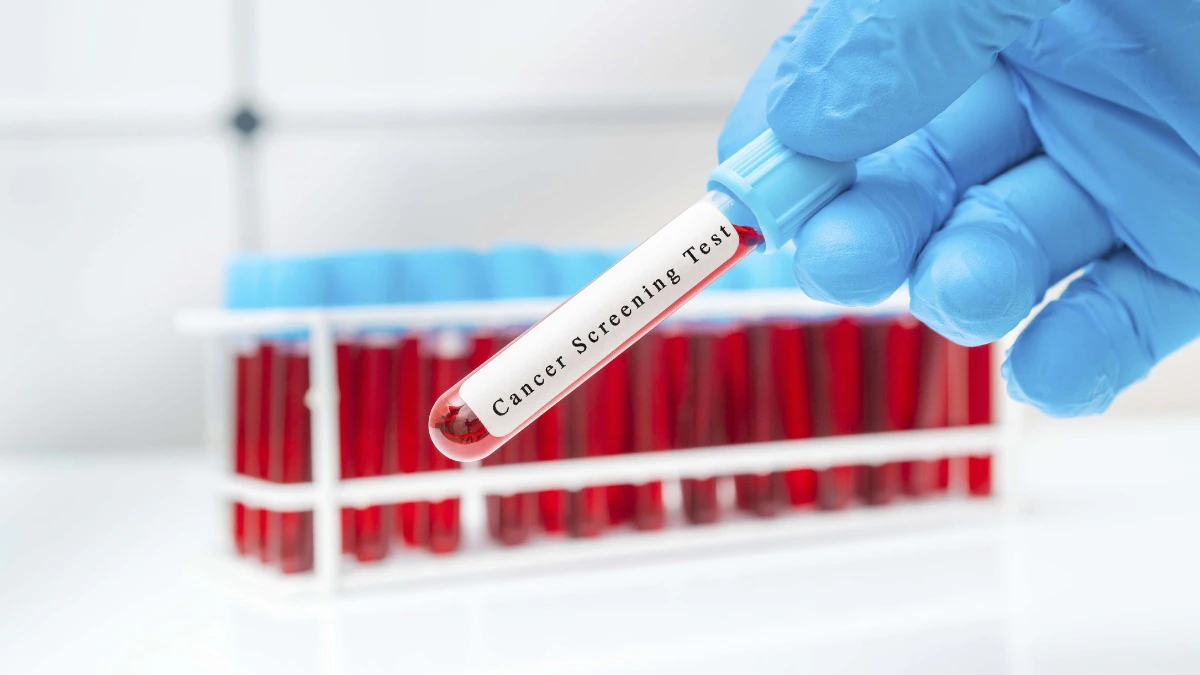In cancer, timely detection is essential. Knowing the warning signs of cancer can make a big difference in treatment efficacy and, in most instances, save you from death. Knowing the symptoms of cancer enables you to consult your doctor sooner, boosting the chances of effective treatment.
Why Being Familiar with the Warning Signs of Cancer Is Important
In this article, we’ll talk about the 10 cancer warning signs you should never ignore and why they’re so important to your health.
Unexplained Weight Loss: A Big Red Flag
Unintentional weight loss can be a scary symptom of many forms of cancer. If you experience weight loss, but your diet and exercise level remain the same, it may be a symptom of cancer. It’s particularly prevalent in cancers like pancreatic, stomach, and lung cancer.
Why It Happens:
Cancer cells can consume a lot of energy from your body, leading to rapid weight loss. Sometimes the cancer itself gets in the way of the body’s nutrient-absorbing mechanisms.
When to Seek Help:
If you’ve lost more than 10 pounds (4.5 kilograms) unintentionally, see a doctor. The earlier the underlying cause is detected, the better.
Ongoing Fatigue: Feeling Drained All the Time
Fatigue is another widespread warning sign of cancer. Though fatigue may result from many conditions, if you’re excessively fatigued after resting, it may be an indication of something wrong.
Why It Happens:
Cancer cells consume much of your body’s energy, making you always tired. Some other factors, such as pain or insomnia, may also result in fatigue for cancer patients.
When to Seek Help:
If tiredness lasts for weeks and doesn’t get any better with resting, it’s now time to see a healthcare provider for further assessment.
Pain That Never Grows Old
Persistent pain, particularly in the back, head, or abdomen, must never be dismissed. Cancer may either directly invade nearby tissue or spread to tissues in the immediate vicinity.
Other Cancers Causing Pain:
- Bone Cancer
- Ovarian Cancer
- Brain Cancer
- Pancreatic Cancer
When to Seek Help:
Any new or continued pain that doesn’t resolve with treatment must be investigated by a health professional.
Skin Changes: More Than Just A Tan
Your skin is a window into your general health. Changes in the look of your skin, like new moles, sores that don’t heal, or color changes, should not be ignored.
Warning Signs:
- New or changing moles
- Yellowing skin or eyes (jaundice)
- Sores that don’t heal
- Redness, swelling, or thickening of the skin
When to Seek Help:
See a dermatologist or oncologist if you experience any abnormal changes in your skin. The earlier the detection of skin cancer, the better the chances for effective treatments.
Bowel or Bladder Habits Changes
Sudden change in your bowel or bladder habits, like blood in stool or urine, frequent urination, or trouble passing stool, may indicate cancer.
- Common Cancers:
- Colon Cancer (stool containing blood, altered bowel habits)
- Bladder Cancer (urine containing blood, urinary frequency)
- Prostate Cancer (trouble urinating)
When to Seek Help:
These changes persist or are unexplained, it’s time to visit a doctor.
Unusual Bleeding or Discharge
Unexpected bleeding from the vagina, rectum, urine, or even coughing up blood can be an important signal. It is commonly seen with cancers like lung cancer, colon cancer, and cervical cancer.
When to Get Help:
Any unusual bleeding or discharge must be checked by a physician right away.
Cough or Hoarseness
A cough that is ongoing, especially one that gets worse or persists, may be a symptom of lung cancer or throat cancer. If you also have hoarseness or trouble swallowing, don’t wait to see your healthcare provider.
When to Get Help:
If your cough lingers for more than 3 weeks or becomes progressively worse, it’s time to consult a healthcare professional.
Difficulty Swallowing: A Red Flag for Throat Cancer
If you find it increasingly difficult to swallow food or liquids, or if you experience pain while swallowing, this could indicate cancer of the esophagus, throat, or stomach.
When to Seek Help:
Trouble swallowing for a long time is a reason to consult your doctor immediately for assessment.
Lumps or Masses Under the Skin
Having a lump or mass on your body may occasionally indicate cancer, particularly if it is firm, enlarging, or painless. Lumps often occur in the breast, testicles, and lymph nodes.
When to Seek Help:
Any lump that is abnormal or does not go away should be examined by your doctor, even if it is not painful.
Difficulty Breathing or Shortness of Breath
Shortness of breath or feeling winded even with light activity may be associated with lung cancer, pleural mesothelioma, or even heart disease.
When to Seek Help:
If you suddenly have trouble breathing or develop chronic shortness of breath, call a medical professional right away.
Early Detection Can Save Lives
Identifying these warning signs of cancer is important for early treatment. Don’t ignore any abnormal changes in your body. If you notice any of the above symptoms, see your doctor immediately for a complete checkup. Early detection and treatment can greatly enhance cancer prognosis and even save your life.




